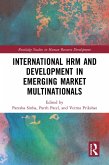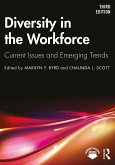Four dimensions of unleadership are identified in this book: paying it forward, living with the unknown, catching the wave, and confident connecting and collaborating. Unleadership exposes the potential that is unleashed when members of the community discover their own power to act and reclaim what they have delegated to their leaders.
Based on extensive research, the authors highlight the flourishing of alternative forms of leading that encourage rethinking ideas of leadership and followership. They provide practical guidance to organisations and practitioners for enriching their leaderly capacity and cultivating unleadership practices to co-exist with and complement leadership practices.
Unleadership is an invaluable resource for leaders and managers in public and private organisations as well as students of leadership and organisational development.
Selen Kars-Ünlüo?lu is Associate Professor in Organisation Studies in the Bristol Business School at the University of the West of England. Her research seeks to understand how entrepreneurs, leaders and organisations develop their capabilities for sustainable futures. In researching these issues, she is committed to attending to the everyday lived experience, and as such her work is informed by interpretative phenomenology and practice-based approaches. She shares this work by writing for academic journals and books as well as reaching wider non-academic audiences through blogs. Selen works with organisations of all scales across many sectors delivering leadership development programmes and facilitating organisational interventions, with a specific focus on instilling climates for learning and innovation and identifying practices for effectively engaging and empowering communities to enable sustainable change.
Carol Jarvis is Professor in Knowledge Exchange and Innovation in the Bristol Business School at the University of the West of England, where she plays an active role in the design and delivery of leadership development interventions. An experienced coach and facilitator, her research exploring leadership and entrepreneurship practices and the everyday lived experience of change and innovation, both informs and is informed by her approach to learning and development. Her work seeks to build and deliver sustainable improvements to workplace practices. Prior to her career in academe, Carol ran her own management consultancy practice for 20 years. She continues to work with organisations across different sectors and sizes, with a particular emphasis on the health and care sectors.
Hugo Gaggiotti is Professor in Work and Employment in the Bristol Business School at the University of the West of England. He writes about work displacement, professional transfiguration and liminality in organisations. His research is anthropological, mostly producing written and visual ethnographies through shadowing and participant observation. The focus of his current writing and visualities is on the intersections between rhetoric, rituals and the construction of the meaning of work, professional wellbeing, leadership and vulnerability in organizations. He conducted his fieldwork for many years in the industrial regions of Pindamonhangaba (Brazil), Ciudad Juarez (Mexico), Almaty (Kazakhstan) and is currently conducting research in the US-Mexican borderlands of Baja California, where he leads a British Council-Newton Fund Impact Scheme project defining ways to prevent women's organisational vulnerability.
Dieser Download kann aus rechtlichen Gründen nur mit Rechnungsadresse in A, B, BG, CY, CZ, D, DK, EW, E, FIN, F, GR, HR, H, IRL, I, LT, L, LR, M, NL, PL, P, R, S, SLO, SK ausgeliefert werden.









